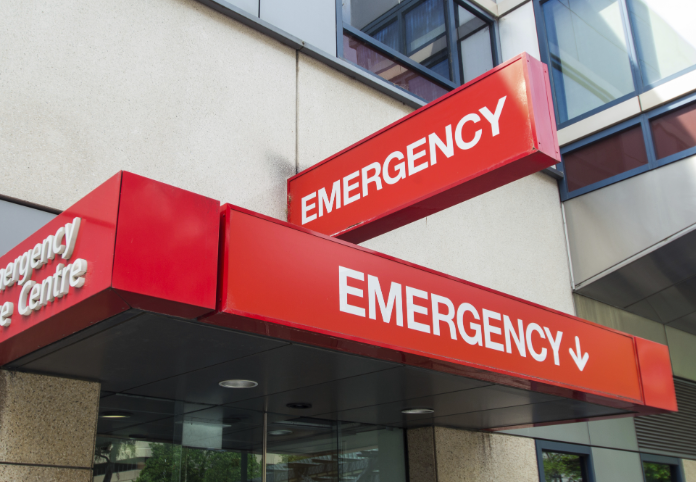18275Views 0Comments

7 Things That Make a Great Emergency Care Center
As a family, emergencies can be the most frightening and stressful situations possible. Facing an unforeseen medical event can be daunting; however, understanding what makes for great emergency care centers can help alleviate some of that fear and pressure. The last thing you want in an emergency is to not know what to expect from your healthcare provider – luckily there are seven features that make for a reliable and trustworthy emergency center. From up-to-date technology to extensive training measures, keep reading to find out more about why these factors can make all the difference when it comes to getting quality care in an urgent situation!
1. Certifications:
The importance of certifications and qualifications within emergency care centers is paramount. Attaining the right qualifications and certifications provides personnel with the necessary skills to appropriately assess and address medical emergencies in a competent and professional manner. This can be especially critical in cases of trauma, as it is important for emergency healthcare professionals to have access to the right medications, equipment and treatments available. Additionally, having accredited personnel ensures that all protocols are followed correctly and efficiently when an emergency arises. It is also important to note that not all medical emergencies require a hospital setting, as some can be managed at an emergency care center with qualified personnel attending to the patient’s needs. In addition to providing quality medical care, having trained personnel also helps ensure safety for both patients and staff members. Certifications allow staff members to act confidently when faced with a wide range of medical scenarios; this knowledge also serves as assurance to patients and their families that they will receive the best possible treatment available. Moreover, different certifications may be required in order for an emergency care center or other healthcare facility to remain compliant with industry standards, making certification an essential part of any organization’s operations when it comes to providing quality care in an emergency setting. Furthermore, certifying staff members can help open up new opportunities for career advancement within the field, which can lead to greater job satisfaction on behalf of those pursuing a career in the medical field. In short, certifications are instrumental in ensuring that any given healthcare facility is providing its patients with only the highest standard of service available — something that all families should strive for when seeking out an emergency care center for their loved ones.
2. Technology:
Technology has become an integral part of emergency care centers today. Emergency medical personnel now rely on state-of-the-art technology to help diagnose and treat patients with a variety of conditions. In addition, technology helps streamline the process of providing appropriate care to patients in a timely manner. For example, handheld computers and monitors often allow physicians to quickly access patient records and relevant medical information without having to search through a pile of paperwork. This makes it easier and faster for doctors to provide accurate diagnoses and effective treatments. Furthermore, advancements in technology have allowed healthcare professionals to use more sophisticated methods for detecting the signs of health complications before they become life threatening emergencies. For instance, some emergency rooms are now equipped with artificial intelligence capabilities that can detect subtle changes in vital signs before they may be visible to the naked eye. In this way, emergency rooms are able to provide more comprehensive care by identifying developing issues early on and taking necessary steps to treat them right away. Technology also plays a major role in making sure that patients receive the best possible care during their time in an emergency room setting. Many hospitals have automated systems that can track communication between multiple staff members at once as well as alert authorities if any problems arise during an emergency situation. This ensures that everyone involved is kept up-to-date on the status of each patient’s condition at all times, thus reducing instances where errors or delays might occur due to miscommunication or lack thereof. All in all, technology has proven itself time and time again as an invaluable asset for ensuring proper emergency care for families in need.
3. Staff Experience:
The medical staff at an emergency care center should also be highly experienced in treating urgent conditions. Ask about their credentials beforehand so you know exactly who will be providing treatment to you or your family members when an emergency arises.
4. Availability of Specialists:
Depending on your condition or injury, you might require specialized treatment from a specialist doctor or nurse practitioner—especially if the situation requires immediate attention outside of regular business hours. Ask if the emergency center has specialists available 24/7, so they can help manage any serious situation in case it arises during off-hours or on holidays.
5. Waiting Times:
Long waits are common in emergency rooms, but some centers offer efficient scheduling systems that prioritize urgent cases over non-critical ones—which could potentially cut down wait times significantly in critical situations where every second counts. See what kind of system each hospital has implemented for quick processing of emergencies and inquire about estimated wait times beforehand if necessary.
6. Extra Services:
When picking an emergency care center, ask about any extra services that may be beneficial depending on your needs—such as transportation assistance or foreign language interpreters if needed—so you can have peace of mind knowing these services are available when needed most urgently .
7. Cleanliness & Comfortability:
A clean environment is key when it comes to receiving medical attention — especially one with ample comfortability options such as reclining chairs , blankets , hot beverages , etc . — which could make a big difference during your stay . Pay attention to how often staff members sanitize surfaces and other areas within the facility , inquire about amenities offered , and take note of how comfortable / accommodating their waiting area is too .




